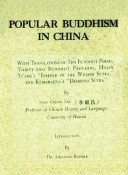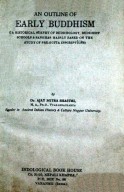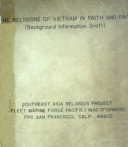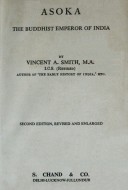Tìm Sách
Sách tiếng Anh-English >> The Spirit of Asoka
Thông tin tra cứu
- Tên sách : The Spirit of Asoka
- Tác giả : Tuvia Gelblum
- Dịch giả :
- Ngôn ngữ : Anh
- Số trang : 55
- Nhà xuất bản : Maha Bodhi Society of India Calcutta
- Năm xuất bản : 1960
- Phân loại : Sách tiếng Anh-English
- MCB : 1210000002623
- OPAC :
- Tóm tắt :
THE SPIRIT OF ASOKA
“…nation shall not lift up sword against nation, neither shall they learn war any more.”
(Isaiah II, 4.)
“…since wars begin in minds of men, it is in the minds of men that the defence of peace must be constructed.” (Constitution of U.N.E.S.C.O.)
“…destroying their egoism, thy enemy… enjoy directly and freely the bliss of thine own empire, the majesty of the Atman.” (Sankarãcãrya: Vivekakũdãmani, 307.)
If it is true that the spirit of a nation is expressed in its values and ideals, then a considerable amount of knowledge about the mind and aspirations of the new India can be gained from the study of the story of Emperor Asoka, whose personality and achievements are doubtless the greatest historical source of inspiration in the India of today. We shall, deal here with this story mainly as told by Asoka himself, on the basis of his edicts and inscriptions which, unlike the legends, are certainly authentic.
The story is not only of great significance as a chapter in political history, but also of extreme importance to the student of the history of religions, as Asoka is decisively responsible for transforming Buddhism from a small sectarian philosophy into one of the greatest religions of the world. The story is also of immense interest from the psychological point of view as an authentic account of the dramatic spiritual development of an individual. Since all Asoka’s reforms had then roots in his personal self-reform, our study of the edicts will start with a psychological analysis. An ideational analysis will follow, and lastly a political one.
 Facebook
Facebook
 Google
Google
 Google+
Google+


















